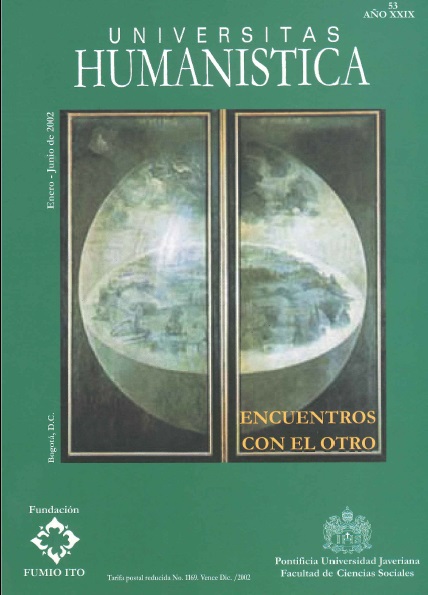Abstract
¿Qué hace una literatura homosexual? Eí artículo examina esta pregunta dentro del discurso de la modernidad y la sitúa al lado de otras sobre la mujer y el salvaje. Partiendo de que las generalizaciones son imposibles y contraproducentes, se mira el caso específico del escritor cubano Reinaldo Arenas (1941-1990). Se estudia el carácter excéntrico y "desviado" de su producción literaria con respecto al paradigma de la modernidad. Para ello se hace una lectura minuciosa de la producción ensayística cubana de las décadas de 1960 y 1970, y en ese contexto se estudia la producción de Arenas. El artículo hace una revisión bibliográfica importante y estudia en detalle el contexto de producción de la obra areniana.
Respecto a la pregunta inicial, "¿Una literatura homosexual?, el artículo concluye: Tal vez no hay literatura homosexual, ni femenina, ni masculina, pero tampoco una literatura sin adjetivos: sí una literatura escrita por individuos en situaciones concretas que reelaboran el mundo y proponen nuevas formas de habitar. Respecto a los escritores homosexuales, otra manera de vivir, más allá del asunto del sólo deseo: nuevas formas del yo, de comunidad, de relaciones sociales (Lauretis) para todo aquel que acceda a leerlos superando una curiosidad trivializadora.

This journal provides immediate open access to its content on the principle that making research freely available to the public, encourages greater global exchange of knowledge.
The journal Universitas Humanística is registered under a Creative Commons Attribution 4.0 International Public License. Thus, this work may be reproduced, distributed, and publicly shared in digital format, as long as the names of the authors and Pontificia Universidad Javeriana are acknowledged. Others are allowed to quote, adapt, transform, auto-archive, republish, and create based on this material, for any purpose (even commercial ones), provided the authorship is duly acknowledged, a link to the original work is provided, and it is specified if changes have been made. Pontificia Universidad Javeriana does not hold the rights of published works and the authors are solely responsible for the contents of their works; they keep the moral, intellectual, privacy, and publicity rights.
Approving the intervention of the work (review, copy-editing, translation, layout) and the following outreach, are granted through an use license and not through an assignment of rights. This means the journal and Pontificia Universidad Javeriana cannot be held responsible for any ethical malpractice by the authors. As a consequence of the protection granted by the use license, the journal is not required to publish recantations or modify information already published, unless the errata stems from the editorial management process. Publishing contents in this journal does not generate royalties for contributors.


